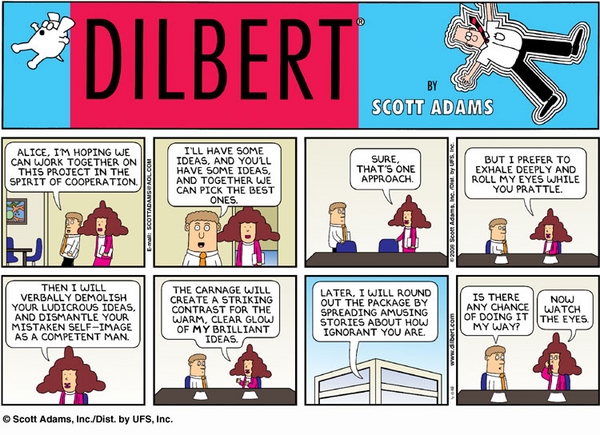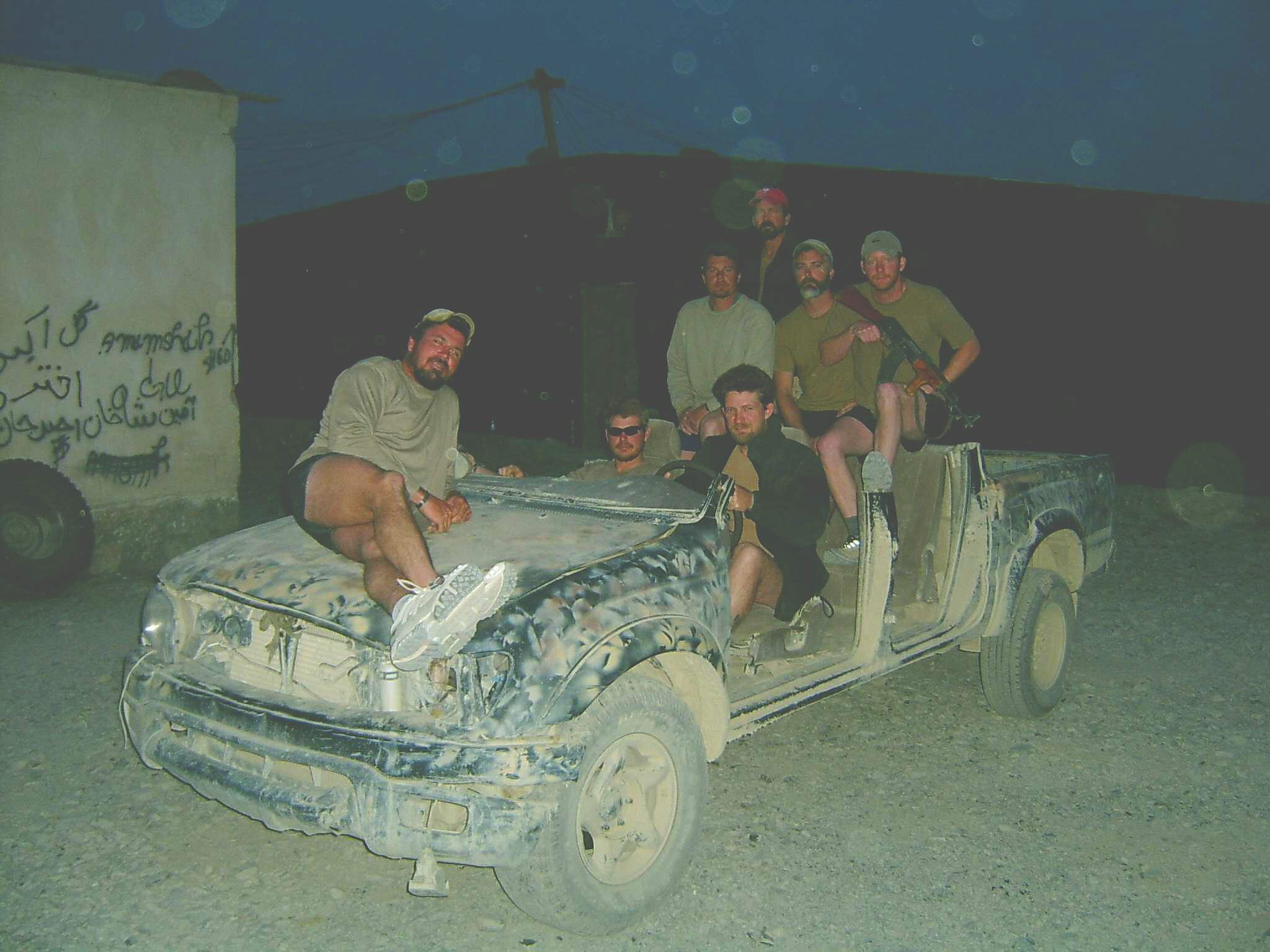 THE COURSE
PROJECT IS DUE WEDNESDAY MAY 2 BY NOON
THE COURSE
PROJECT IS DUE WEDNESDAY MAY 2 BY NOON
ABSOLUTE FINAL DUE DATE. Slightly early papers
ARE accepted.
turnitin is up on our Canvas site. It's at the top of
the Assignments folder: Milestone 4
If you have any problems with turnitin, please let me
know ASAP!
PRESENTATIONS ARE SUNDAY APRIL 15 and 22 at 2 AND WEDNESDAY APRIL 18
and 25 12-2. ALL ARE WELCOME!

EDP5285-01 SPRING
2018
PROFESSOR SUSAN CAROL
LOSH

YES! TIME FLIES!
THE FINAL
DUE DATE FOR THE FINAL DRAFT OF THE COURSE PROJECT IS
WEDNESDAY MAY 2 NOON.
THROUGH THE TURNITIN
LINK IN OUR CANVAS ASSIGNMENTS: Milestone 4 SITE
|
GUIDE TO THE MATERIAL:
TEN
ACROSS, WITHIN: GROUP
COOPERATION AND CONFLICT
|
KEY TAKEAWAYS:
-
Conflict ALSO occurs within groups as well as across groups
-
Internal factions may even split or destroy a group
-
Cross group conflict may occur whether groups anticipate future interaction,
or no interaction
-
When no future interaction anticipated, less of a feeling of accountability
-
Intergroup conflict then can escalate
-
It is much easier to create conflict than to solve cross group conflict
-
Traditional hostilities, scarce resources, strong social identities,
some world views (e.g., "life is a jungle fight")
-
Creating cooperation: what DOESN'T work:
-
Simple contact
-
Contact under enjoyable circumstances (e.g., a movie or banquet)
-
Positive propaganda
-
Creating cooperation: what MIGHT work:
-
Equal status contact
-
Superordinate goals
-
"Jigsaw" problems
-
A problem-solving approach
-
GIVE IT TIME!
-
Cognitive modifiers
-
Stereotypes in particular
-
Resistant to change--a lens to view the world!
-
Ideologically justify cross group conflict and poor treatment of outgroup
-
Groupthink may contribute
-
Social identity may contribute
-
Conflict CAN have positive outcomes for all groups
|
Muzafer Sherif's classic "Robber's
Cave" experiment remains one of the most
famous studies in the group dynamics literature. "Well-adjusted"
White, 11 year old American boys in the mid-1950s had a camp experience
that those who are still around probably remember to this day. They were
brought to camp in two groups and each group was initially separated from
the other. Over several days, each group became aware of the other. In
a matter of days, generously assisted by the research team, cross-group
rivalries developed, culminating in a "tournament." Curiosity gave way
to the development of social identity and in-group loyalty (group names
and symbols) and considerable outgroup animosity. The research team then
faced the task of bringing the two groups peacefully together, which they
eventually accomplished through a series of engineered problems that required
cross-group cooperation to solve.
To this day, I wonder how successful the
research team truly was in creating cooperation--or did they fudge a little
about how much they succeeded? After all, had children gone home prior
to the series of engineered disasters designed to bring the groups together,
what would they have told their parents about the camp experience?
Would the researchers have been sued, despite the signed consent forms?
This series of studies was conducted about 20 years prior to the establishment
of institutional review boards (IRBs or Human Subjects Committees) on campus.
Would they have been approved? What kind of arguments would you have presented
as the Principal Investigator to convince the FSU IRB to approve this research?
WITHIN GROUPS, ACROSS
GROUPS
WHAT KINDS OF DIFFERENCES?
|
Typically we think of conflict as occuring
across
groups and cooperation as occuring within groups. Yet factions and
exploitation can also occur within groups even with as few as three
members, making cooperation among members difficult. At its worse, the
group may become totally dysfunctional and even disintegrate. While we
may at first consider the arguments and conflicts of interest that occur
within informal friendship groups, here are some formal organizational
group examples:
-
About 40 years ago, the large Southern Baptist
Convention (a major USA religious denomination) fractured into what so
far has become three distinct groups, none of which (so far) is quite as
"successful" as the original parent convention. If you hear about "Southern
Baptist pronouncements," these days, you had better be sure which
Southern Baptists are meant.
-
Academic college departments often split in
two (or more), and sometimes an entire department may either cease to exist
or may be subsumed by another department. Educational Policy at FSU was
once part of the Department of Educational Research (now Educational Psychology
and Learning Systems), then its own department of Educational Foundations,
and is now part of the Department of Educational Leadership and Policy
Studies (can you keep this one straight without a scorecard?)
-
Corporations may become so internally fractured
that the company goes out of business, such as the family owned former
Pic N'Save stores in North Florida, whose family members simply could not
agree on how to run the business after their parents died. (They went into
bankrupcy and never came out.)
On the flip side, groups may have a history
of intermittent or regular intergroup cooperation. The National Council
of Churches encouraged working relationships among several liberal to moderate
interpretive Christian denominations. Colleges and universities agree to
have regular schedules of sports competition with each other in leagues.
Neighborhoods may cooperate in "fighting City Hall" on urban development.
| ANTICIPATED VERSUS UNANTICIPATED
CONTACT |
While continued competitive interactions
may create conflict, many consequences probably depend on whether these
competitions are within or across groups, and whether these competitions
are regularized in some way. Internal competition may be detrimental
to group cohesion and lead to members resenting one another. In classrooms,
we see this in the use of strict "curves" for grading. " Win-lose" evaluations
(zero-sum matrices) or rating systems in employment and other group endeavors
can sometimes even lead to the sabotage of others' efforts or "colleagues"
denigrating the efforts of their peers.
Although one might suppose that internal
conflict might be greater under conditions of scarce resources (see below),
some recent research has found it is the rankings and relative proportions
that matter to many members (about 1/4)--even if the total payoff is less
for individual group members.
On the other hand, what about teams which
play each other on a regular basis, where competition is expected, or "traditional
rivalries" such as "brain bowls?" (Or the Seminoles versus the Gators.)
Corporations, too, are regularly ranked by several agencies. Perhaps surprisingly,
competition can be "good-natured" as well as "cutthroat."
The Johnsons suggest that a "go for the
win" strategy or distributed negotiation is
most pronounced when parties do not regularly interact and do not anticipate
future interaction. Under these circumstances groups do not see mutual
interests and may believe that their own negative actions will not have
consequences. On the other hand, integrative negotiation,
or problem solving attempts to maximize joint benefits should be more common
when regular interaction is expected. For example, football teams from
adjacent high schools, whose members interact in several other contexts,
may still want to win but may also be less likely to engage in truly "dirty"
ploys. Supportive evidence has been reported in summaries by sociologist
Joe Feagin. In another example, the FSU faculty union (United Faculty of
Florida-FSU) uses "interest based bargaining" or shared interests in collective
bargaining with the FSU administration.

For whatever reasons, it appears much
easier to create conflict among groups than to create cooperation.
Here are some factors that increase animosity across groups:
-
Competition for scarce
resources. Competition can create conflict both within and across
groups.
Within
groups, individual interests may be at odds with group interests, especially
in the short term. "The tragedy of the commons"
refers to the tendency of individuals in search of their own interests
to deplete group resources faster than they can be replenished. Ultimately
all
group members, including those who initially profited,
are far worse off.
It doesn't take much. For most of us much
of the time, resources are short and desirable resources are always
short. A tight job market, a selective graduate program, a desirable place
to live, next to no raise money, the "big game": free market economists
claim competition is supposed to "bring out the best in us." Competition
is supposed to make us sharper and more productive. It can.
But instead competition, especially fierce
competition, can also generate sabotage, scapegoating, and conflict
across groups that damages overall productivity. That said, competition
theories do not tell us
which groups will be scapegoats, what the
outcomes are likely to be under which circumstances, or whether the target
will be groups rather than random (or lucky) individuals.
Competition appears
to interact with:
-
A cultural history
of hostilities. Whether
competition among groups which have lived close to each other creates hostilities,
or whether the rancor created by long-standing stereotypes provides a convenient
target for aggression, outgroups, in fact, are seldom random. Outgroups
tend to be low enough in social standing that negative actions taken against
them are not met with swift punishment or enforced restraint from legitimate
authorities or powerful allies. Groups appear to agree on the rank order
standing of each other in society (exempting one's own group, see below).
Identifiable
groups low in power and resources often become scapegoats for
many of the groups ranking above them. Sociologists refer to the intersection
of race-gender-class to designate groups that may be particularly vulnerable.
However, sexual orientation and sexual preference are clearly also factors,
as can be religion.
Skin color or shape, distinctive clothing
or head gear, symbols (e.g., a cross or a star) can make a group member
relatively easy to identify, although mistakes are common. Asian
Indians are more likely to wear a turban. for example, than middle Easterners,
e.g., Saudis, which many U.S. adults do not know. Many USA Jewish Community
Centers have Christian members.
Within groups, too, there is often
a rank order. Departments within a school or a college may be unobtrusively
rated by their fellows in social status. Fraternities may rate women as
acceptable dating partners or as sexual fodder (work by Mindy Stombler
and Patricia Martin). Members of various standing in the military rate
the other services--and platoons of their own.
-
Ingroup solidarity.
When
groups are internally very cohesive (especially on the interpersonal dimension),
they tend to be less friendly toward other groups. This may occur because
high levels of internal cohesion exist (review Groupthink!).
-
Accentuate social
identity. When individuals
identify very strongly with a group, they are less friendly toward other
groups. You may be surprised to learn how trivially easy it can be to activate
social identity. Remember studies early in the semester that found a student's
pain tolerance greatly increased if you told him/her that "Catholics [Jews/fill-in-the-blank]
tolerate pain less well than other religious groups." Cultural symbolism
(flags, songs, photos, mottos, sports insignia, which plentifully occur
in many groups) also activates social identity.
-
Diversity.
Differences
in personal styles (e.g., authoritarianism), gender or ethnicity (different
background experiences leading to different expectations), or power differentials
can also increase the potential for within or cross group conflict. This
is particularly the case if there is fusion across different levels,
for example, power differentials coincide with gender. Lower status members
will be distrustful and higher status members tend to over-estimate their
contributions to a group.
Are some people particularly prone to create
or aggrevate group conflict? Lawrence Wrightman's
philosphies of human nature refer to individuals who see the
world as an untrustworthy place. Such individuals tend to go into situations
with a "win-lose" perspective rather than a focus on shared problem solving.
Of course, unwittingly, these "jungle fighters" can create the very competitive
and abrasive situations that they claim to find so abhorrent. Others react
to these dominance attempts and what is easily perceived as outright GREED
with escalated competition and rancor--and the battle is on. Unfortunately,
Prisoner's
Dilemma Game studies indicate that it is easier to lose trust
and create competitive situations than it is to create cooperative relationships.
Once
lost, trust is not easily regained.

Unfortunately, it is tougher to create
cooperation than conflict. If one approach does not work, the advice is:
try, try again with something else. Keep in mind that adversarial parties
in conflict often
don't want to meet, don't want to cooperate.
In an atmosphere of suspicion, each side fears that any attempts at reconciliation
will be seen as weakness or concessions, leading the "advance party" worse
off than before.
-
Simple contact.
The
idea that we can simply put together different factions, ethnic groups,
gangs, or other "warring" entities in the same room, the same school, or
the same neighborhood is popular. Too bad. Not only do groups rarely
become more positive toward each other, simple contact appears augmented
by selective perception and stereotypes. What happens next is that
groups typically become
more hostile toward one another. Contact
is seen as the excuse to fuel negative impressions (the Israeli-Palestinian
situation provides some vivid examples of this).
Part of the problem is that simple group contact
is often stratified or unequal contact.
For
example, when largely White schools are integrated with Hispanic or Black
students, Whites are more often placed into Honors classes, and the Hispanic
or Black kids, originally from schools with fewer resources, are placed
in remedial courses. Thus, White students and their parents look around
to see their worst ethnic stereotypes reaffirmed and vice-versa. Anything
that segregates a particular group and makes it visible (e.g., "Women's
Auxilliaries") will not create more positive cross-group attitudes. Recall,
after all, that Southern Whites and Blacks interacted for years--but not
as status equals.
-
Contact under pleasant
circumstances. Perhaps simple
reinforcement theories could work, so the somewhat simple-minded theory
goes. We place "warring factions" together to enjoy a pleasant experience
such as a meal or a movie. Sad to say, that typically does not promote
cooperation either. In fact, the occasion may provide the opportunity
for rival groups to call each other names, "gather more dirt," or even
throw food as the Robber's Cave campers did in the cafeteria during
the Sherif experiments.
-
Provide positive
information about the other group. Group
members don't pay much attention, remember very little, and are highly
skeptical about what they do remember. It probably won't hurt, but
providing "positive propaganda" about a warring group probably won't help
much either.
Try some of these suggestions and remember
to give any of them some time. It's easier to instill suspicion
than trust (repeat!).
-
Contact must be equal
(or even higher) status. Rival
or hostile groups must meet as status equals in the task at hand. It may
be difficult to convince group members that the other group is equal overall,
but information must be given at the beginning that these groups are equal
with respect to the task. The "imagined" member of an "outgroup" is
presented as high status, popular or a prizewinner.
-
For several years, the National Science Foundation
has been very concerned about the paucity of women and Black or Hispanic
minorities in certain science fields (e.g., physics). Some of the studies
they funded have visited college campuses to conduct in-depth interviews
with faculty, staff, and administration. One conclusion the NSF has drawn
is that inclusion MUST "begin at the top." If
top university and college administration appear to support inclusion,
the result is an increase in women/minority doctorates awarded, in diverse
faculty, and in administration. If support at the top appears lukewarm
or non-existent, not much gets done. This approach appears especially pertinent
to hierarchical organizations. Consider analyzing this approach in other
institutions, such as politics.
-
Superordinate goals.
This
was the most famous conclusion to emerge from the "Robber's Cave" studies.
The researchers created a series of disasters that required cooperation
from all campers, Rattler and Eagle alike, to solve. For example,
the "water pump broke," then the truck "broke down." Both Rattlers and
Eagles had to retrieve the necessary parts.
-
A variation on superordinate goals is Aronson's
(senior and junior...Elliot and Josh)
Jigsaw Classroom.
Aronson
and his colleagues created multidimensional tasks and integrated groups.
Each child received one piece "of the puzzle" and had to teach other students
in the group. Only when all group members contributed and cooperated could
the entire group complete the task. This approach has now been used in
school systems all over the United States and is one large portion of a
greater approach that has come to be called cooperative learning.
-
Take a problem solving
approach. Integrative negotiations
are more likely to result in cooperation than distribution negotiations
in which people try to maximize payoffs. A focus on what group members
(or groups) have in common as well as defining conflict as localized helps
to mediate disagreement. Very often, groups "at war" still have
common problems. Interest-based collective bargaining is one example.
For example, we all must live on the
same Earth. All of us, no matter how rich or poor, are possible victims
of SARS, the contagious respiratory virus that periodically erupted beginning
in 2003 (in fact, the initial victims have tended to be the poor, living
under unhealthy and crowded conditions--or the "rich" who could afford
to visit Hong Kong or Singapore from Western countries) or avian flu--or
this year, even measles, mumps or whooping cough. Clearly, there will be
disagreements. Is there "really" a global warming problem? Is avian flu
a new contagious virus that could create a pandemic? Opposing sides will
war about the definition of the problem, whether there
is a problem,
and what to do about the problem. In the process, we can only hope that
each side will see common goals and decide to cooperate.
-
Give it time.
Aronson
(and others) have found that students are initially hostile to members
of other ethnic or gender groups. It can take several weeks of working
together productively to produce more positive views toward the other group
and more interaction. Remember that if we can get diverse members to work
together in the first place, diverse groups are more productive and creative.

|
IN-GROUP AND OUT-GROUP COGNITIVE
PROCESSES
|
Several cognitive processes can foster
cross-group conflict.
-
The social perception literature tells us
that we tend to remember vivid information and
information
more consistent with existing cognitive structures more easily.
All
it takes is one vivid incident about an individual or
group ("did you hear what happened in the Anthropology parking lot last
week?") and that information tends to be remembered and generalized.
-
In our private lives, we tend to "affirm
the consequent," that is, we are "agenda scholars": we draw
conclusions first, then search for supportive evidence. If, for example,
I tell you that someone was born under a particular zodiac sign (say, "The
Year of the Dragon" or a "Leo"), you will tend to select, accentuate, and
remember information that is consistent with your schema, or cognitive
picture, of a "Dragon" or a "Leo."
-
The Fundamental Attribution
Error. Research indicates
that we are more likely to attribute our own actions to the environment,
the situation, or other people while we explain the actions of others
in terms of their personal characteristics or dispositions. This sets the
stage to interpret actions performed by others as due to intended
and personally driven malice or hostility. Sound familiar in today's heated
political environment?
These processes can unwittingly support cross-group
conflict. But probably the most studied cognitive phenomenon with respect
to intergroup relations is stereotyping. Stereotypes
are a special type of cognitive prototype applied to large social groups.
When we stereotype, we
categorize. We take the
people we encounter and place them in a "cognitive bin" with information
about other people whom we believe are similar in key respects (such as
gender, ethnicity, sexual orientation, occupation or age). This is all
well and good--people categorize all kinds of objects as a form of cognitive
"economy" (do you examine every head of lettuce at the store? or each tube
of Colgate toothpaste?). However, stereotypes differ in key sinister ways
from other forms of categorization:
-
Stereotypes reduce
outgroup variation. Members
are seen as more alike than they really are (for example, stereotypes about
memory loss in older people).
-
Stereotypes exaggerate
differences between the ingroup and the outgroup. For
example, stereotyped individuals will argue that "men are logical and women
are emotional" (or "men are from Mars and women are from Venus"...)
-
Stereotypes tend
to be rigid. When presented
with contradictory information about other kinds of objects, people tend
to alter their generalizations, at least to some degree. However, we are
more likely to defend our stereotypes, claiming the contradictory
information is "the exception that proves the rule" or that "most 'Xers'
fit the mold." This rigidity suggests that individuals have a kind of vested
interest in believing their stereotypes are true. Probably so, since:
-
Stereotypes typically
rank groups in a social hierarchy or stratification system.
No
surprise! Ingroups tend to be ranked higher, outgroups ranked lower. The
interesting thing is that it is largely rankings of the ingroups that
are the most distorted compared with the rankings of others. One study
of sororities at Tulane University in New Orleans found that "sisters"
nearly always rated their own sorority at the top of the list. Their rankings
of the other sororities were closely tied to rankings given across campus
(with the exception of each woman's own sorority, of course).
-
Stereotypes ideologically
justify poor treatment of the outgroup. Members of the ingroup
carefully explain the necessity for their condescending, segregating, even
cruel or violent, behavior toward outgroups. They must badly
treat outgroup members in these ways because outgroup members behave in
such shabby, incompetent, even dangerous ways. The cause of the hostilities
is attributed to the outgroup. Group members may believe that an outgroup
is so threatening that they must engage in "pre-emptive strikes," damaging
the outgroup sufficiently so as to prevent harm to themselves. For example,
Jim Jones' actions in Jonestown in shooting and killing visiting politicians
from the United States decades ago were justified to the group by explaining
that the politicians had come to harm Jones and the Jonestown community.
|
THE ROLE OF COGNITION: CAUSE
OR CONSEQUENCE?
|
Psychology typically locates the genus
of action in the individual. Thus, psychologists will treat stereotypes
and other ideological factors held by individuals as causal to outgroup
hostility and scapegoating. Social psychologists recognize that
some causes of our behavior are internal but that others emanate from the
environment. Further, social psychology has shown that if people change
their behavior (perhaps due to outside forces) and feel committed to that
behavior, attitudes will often follow suit to become consistent with the
behavior.
What does all this mean for the rhetoric
of outgroup hostilities? Some conflictual actions toward outgroups
no doubt occur because we hold pre-existing negative attitudes toward a
particular group. However, it is also possible that because we treat
members of a group poorly, we develop hostile attitudes toward them.
To admit that we engaged in aggression toward members of another group
(including cheating at games, stealing possessions, or even murder) because
we were jealous, coveted their resources, felt bad because we had failed
at something, or wanted an advantage toward some type of prize could induce
considerable shame, guilt and anxiety. To ameliorate these nasty feelings,
we convince ourselves that members of the other group "deserve it" because
of their derogatory characteristics. Thus, we feel better about ourselves
and our actions. We may even glorify ill behavior toward outgroups, convincing
ourselves that "society is better off."
Once again we return to the combination
of strong interpersonal cohesion and highly directive leadership that can
produce "Groupthink." Several elements that Irving Janis idenitified in
the syndrome were cognitive characteristics: heightened in-group identification;
"we-they" thinking; a tendency to denigrate other groups and to see them
as inferior to one's own. One's own group was seen as relatively invulnerable.
This perspective is also endorsed by many
social identity theorists.
One guilty party that contributes so much
of the research in this section is a strong sense of group identity. Is
cross-group antagonism inevitable? Some social and behavior scientists
think that this is so, because competition constantly occurs for valued
and scarce goods. On the other hand, insights from game theory and negotiating
suggest cautious optimism. By changing the definition of the situation,
we may be able to maintain cohesive groups yet minimize outgroup hostility.
|
A SIDE BAR FROM GAME THEORY
|
Game theorists (e.g., The Prisoner's Dilemma)
work with a variety of "payoff matrices"
to
study how groups and individuals interact. In "zero-sum"
games, what one person or group wins, the other loses. This
is true in most team sports, wherein only one team can win the game
or the tournament. However, zero-sum is not necessarily the case in individual
sports such as marathon running, where players are relatively satisfied
if they set a "personal best."
In non-zero-sum
games, it is possible for all parties to win something,
although the payoffs may vary to the different groups. Although the naive
outsiders often believe that labor and management wage constant war, in
fact unions provide a structured and ritualized bargaining situation for
both union and administration to "come to the table." Under these circumstances,
agreements may be hammered out so that both parties believe they have gained.
Superordinate goals tend to create non-zero-sum games.
Of course, so much depends on the relative
resources of all parties to the interaction. If a group holds few bargaining
chips, there is little incentive for the more powerful group to bargain.
The less powerful group may be able to appeal to altruism or to guilt over
prior treatment. Less powerful groups may be able to form
coalitions (for example, the "Tea Party" with the economically
conservative among Republicans, and minorities and working class of diverse
ethnic backgrounds among Democrats) thus making them more equal to groups
holding more resources.
Research from some bargaining studies suggests
that for as many as 25% of us, what counts is "doing better" than others--even
if everyone is worse off. It's still unclear what predicts individuals
who take this kind of unproductive stance.
Finally, it is important to remember that,
although conflict is typically treated as destructive and to be avoided,
it can be positive for groups. One does not necessary have to take the
Johnsons' position that conflict prevents life from getting boring! (Sometimes
boring has a lot of appeal.) Whether across or between groups, conflict
can:
-
Lead to the development of skills
-
Strengthen group identity
-
Lead to cross-communication across groups
that might not occur otherwise
-
Develop negotiating skills
-
Foster the use of compromise
-
Ultimately force groups to cooperate for their
own mutual benefit
This page was built with
Netscape Composer.
Susan Carol Losh April 14
2018

 THE COURSE
PROJECT IS DUE WEDNESDAY MAY 2 BY NOON
THE COURSE
PROJECT IS DUE WEDNESDAY MAY 2 BY NOON




